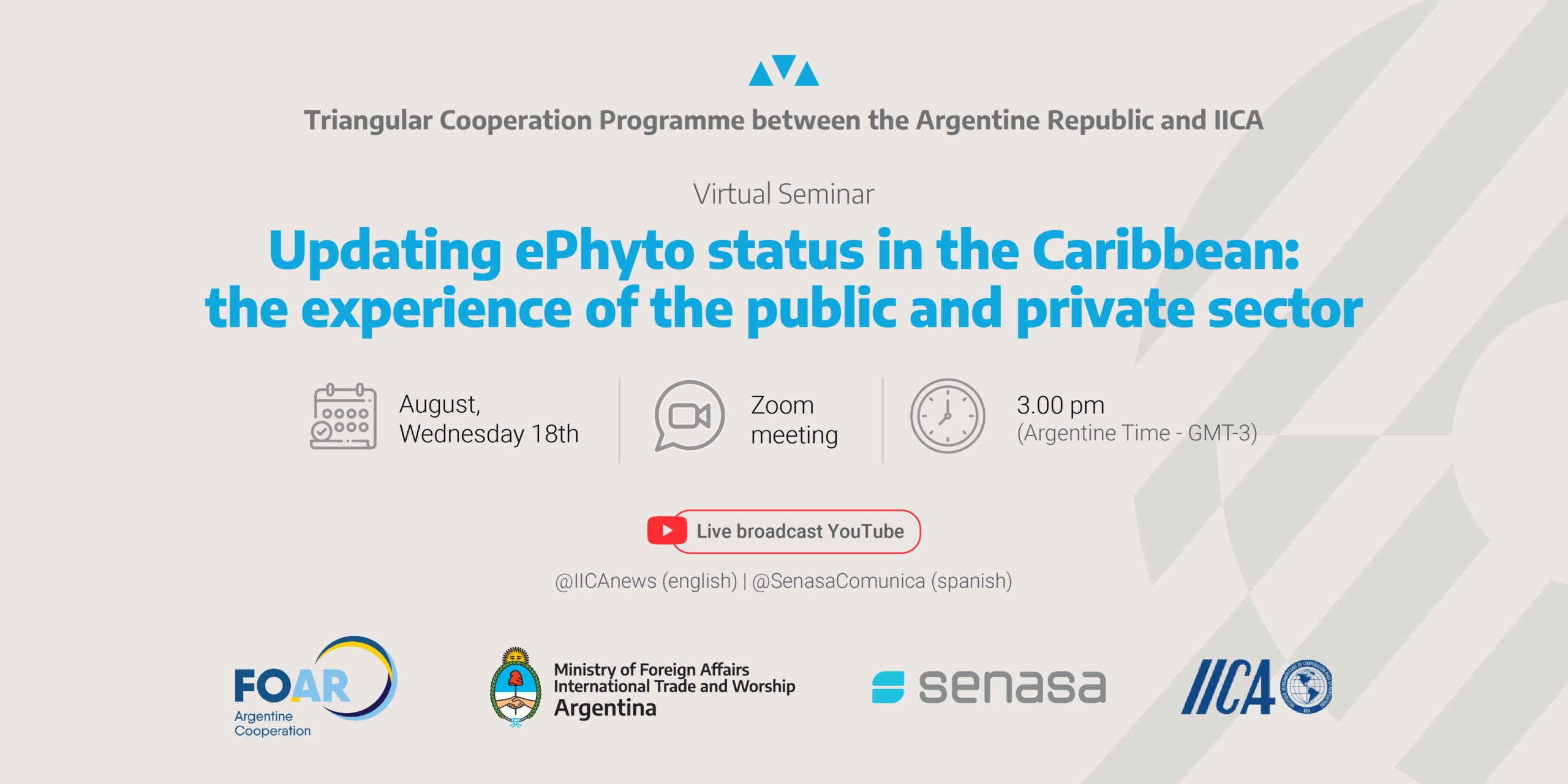The program’s objective is to boost the productive capacity of the agricultural sector and to improve rural life in the Caribbean.

Buenos Aires, 16 August 2021 (IICA) – A virtual seminar on electronic health certification will mark the beginning of an important technical assistance program devised by Argentina and the Inter-American Institute for Cooperation on Agriculture (IICA) to strengthen the productive capacity of Caribbean countries.
The event will be held on Wednesday, 18 August, and will be attended by representatives from all the Caribbean States.
The program’s objective is to boost the productive capacity of the agricultural sector and to improve rural life in the Caribbean—a region that is highly dependent on food imports—by strengthening the sanitary and phytosanitary systems, stimulating agricultural trade and preserving natural resources.
The premise is to share good agricultural practices developed by Argentina, a leader in food production and exports, and address the challenges faced by Caribbean producers, who are working to improve their yields to ensure food security in their countries.
The activities are part of the South-South and Triangular Cooperation Program established by means of a Memorandum of Understanding signed in April by Felipe Solá, Minister of Foreign Affairs, International Trade and Worship of Argentina, and Manuel Otero, Director General of IICA.
The inaugural seminar will be a space to exchange knowledge and experiences on the Electronic Phytosanitary Certificate, called ePhyto—the electronic equivalent of a phytosanitary certificate in XML format containing all the same information as the paper certificate.
ePhyto allows countries without a national Phytosanitary Certificate production system to participate in global exchange.
Specialists from Argentina’s Ministry of Agriculture, Livestock and Fisheries and the National Food Safety and Quality Service (SENASA) will be in charge of the activity along with authorities from the Caribbean, representatives of Argentina’s private sector and technicians from IICA.
The seminar will be held via an online platform and will be streamed simultaneously over the YouTube channels of SENASA (in Spanish) and IICA (in English), at 3:00 p.m. in Argentina.
The backbone of the activity will be to protect crops through plague control and will cover topics such as phytosanitary surveillance systems, use of IT systems, modern biotechnology and phytosanitary inspection and certification.
Following the inaugural seminar and based on the needs and problems identified in agriculture in the Caribbean, further technical assistance will be provided at a country or subregional level.
The Directorate General of International Cooperation (DGCIN) of the Ministry of Foreign Affairs will spearhead the project, which will be implemented through the Argentine Fund for International Cooperation (FO.AR), by means of which Argentina promotes South-South and Triangular Cooperation activities through technical cooperation initiatives with other countries and regional and international organizations.
The Memorandum of Understanding between Argentina and IICA dates back to 2009, when the first agreement was signed for joint horizontal technical cooperation activities with the countries of the Americas.
At that time, the API-Caribbean project was carried out to strengthen apiculture and to increase the productivity of hives in Barbados, Dominica, Saint Lucia and Saint Christopher and Nevis through the support of Argentine specialists in beekeeping and product testing and marketing.
More information:
Institutional Communication Division
comunicacion.institucional@iica.int











